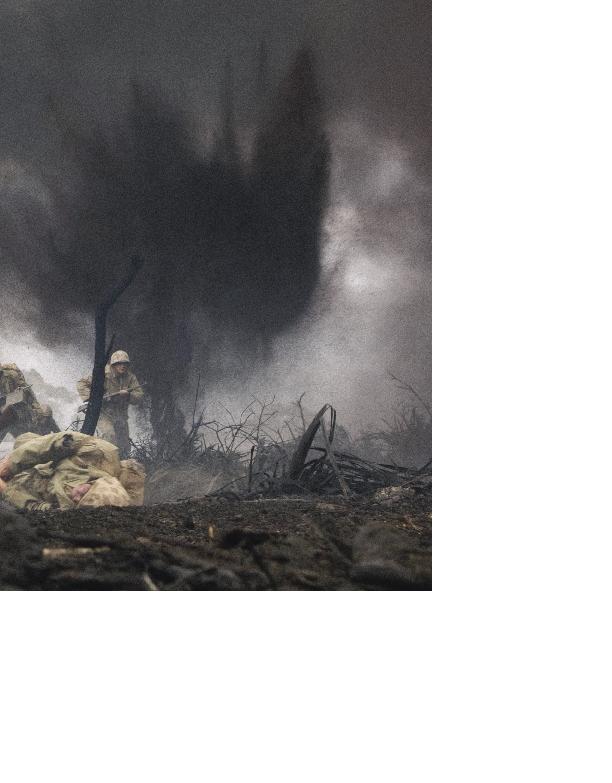
to make things up or redo things that had
been done before. If we could find the source
material, we might be able to let it speak for
itself." Spielberg relayed their plan to
McKenna: Cover the entire Pacific war with
stories about real soldiers and, most impor-
tantly, make it more intimate and psycho-
logically deeper than Band. McKenna
believed that finding true stories to base the
series on was a crucial element to the pro-
says. "Making it real connects the viewer
more deeply. It becomes more than enter-
tainment; people feel like they're watching
something that's really happening."
Brothers' late author Stephen Ambrose. Am-
brose's job was to collate information about
veterans of the Pacific war and recommend
story ideas to McKenna. Ambrose, who re-
the war, suggested that McKenna
read two memoirs: "With the Old
Breed: At Peleliu and Okinawa" by
Eugene Sledge and "Helmet for
My Pillow" by Robert Leckie.
McKenna says that both books
floored him.
their own fears and their own
degradation that they went
through
particular stood out to everyone
involved as a powerful piece of
material, mainly because Sledge's
talents as a writer were not great,
which allows the text to remain
honest and intimate. "I read it
and I said `This is it,'" McKenna
recalls. "This is what the series is
about: the moral cost of war, the
loss of innocence and the loss of
humanity." They soon discovered
Sledge's text was revered amongst
veterans. As a further test to make
sure they were on the right track,
Hanks approached Major Dick
Winters, a member of the com-
pany that was the focus of Band of
Brothers, and informed him that
they were looking into Sledge's
book. His response was simple:
"Sledge is a legend."
(James Badge Dale), the producers
wanted to tell the well-known
story of John Basilone (Jon Seda),
who earned a Medal of Honor and
was cited for contributing in large
measure to the annihilation of a
Japanese regiment on Guadal-
canal. Soon after, Basilone was pa-
raded around (mostly against his
will) on a war bond tour by the
federal government before finally
three protagonists in place, McKenna set out
to interview anyone who would talk to him:
family, friends and fellow soldiers who knew
these men intimately. Even though all three
men are deceased, McKenna managed to get
all the information he was looking for. A big
part of the trust he earned from his intervie-
wees was due in part to the success of Band of
Brothers. "They trusted us because they knew
we would be respectful to the central core of